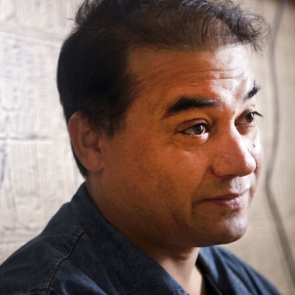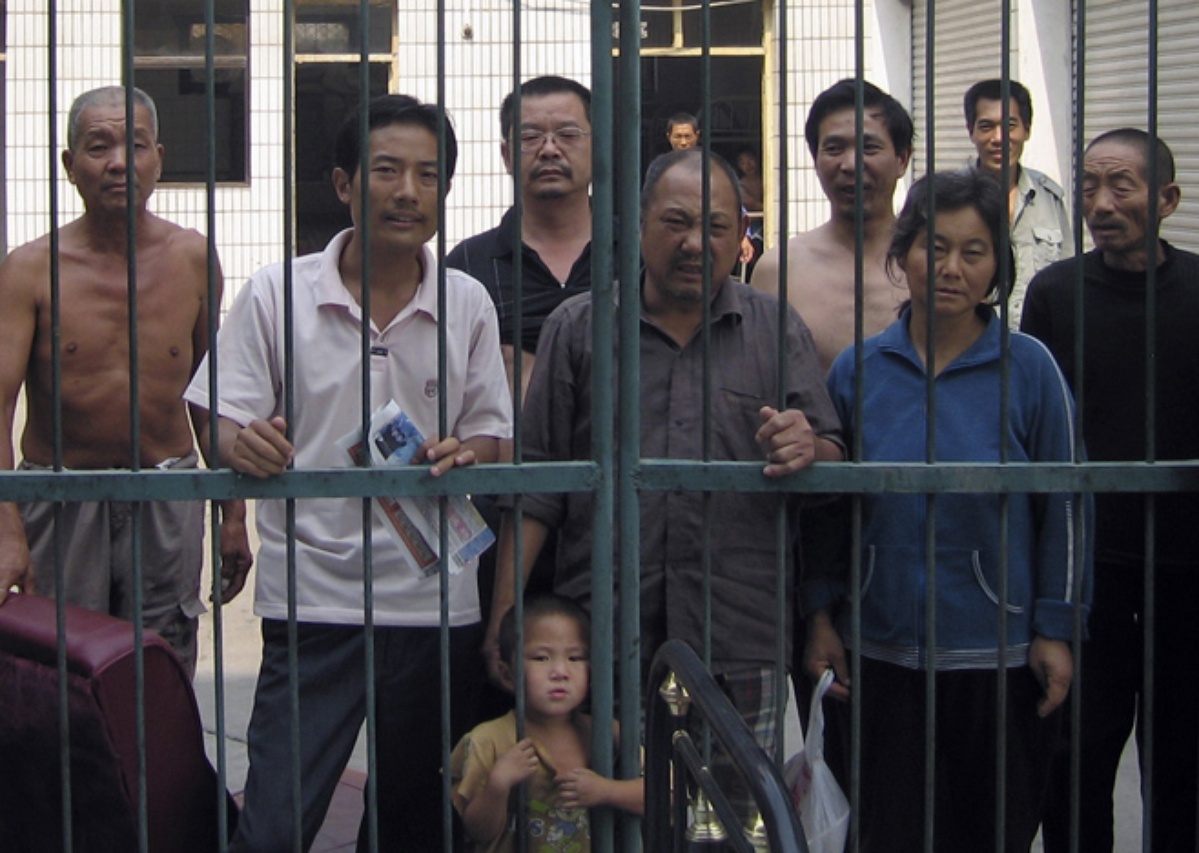
Ilham Tohti
European Parliament Sakharov Prize for Freedom of Thought
Václav Havel Human Rights Prize honouring outstanding civil society action in defence of human rights.
Ilham Tohti should get the Nobel Peace Prize, not life in prison
I think for a nation, there comes a point where you can go to jail for what you say, for running a website or for just speaking the truth - which for me would be an honour.
Renowned Uyghur intellectual and human rights defender, Ilham Tohti was an economics professor at the Central University for Nationalities in Beijing [now Minzu University] prior to his arrest in 2014. Rejecting separatism and violence, he worked for over two decades to build understanding between Chinese Hans and Uyghurs, a mainly Muslim Turkic ethnic group residing primarily in an area in northwest China which the Uyghur people call East Turkistan and is referred to by the Chinese government as the Xinjiang Uyghur Autonomous Region (XUAR).
In late 2005, Ilham Tohti set up the Uyghur Online website to discuss social issues affecting Uyghurs and to promote better Uyghur-Han relations. The website published articles in both Chinese and Uyghur.
“I founded the Uyghur Online website at the end of 2005, to provide Uyghurs and Hans with a platform for discussion and exchange. Of course, I knew that there would be an intense clash of opinions, but I believe that confronting differences is not frightening. What is truly frightening are silenced suspicions and hatred.”
Chinese authorities alleged, without credible evidence, that this website played a role in instigating tensions in Xinjiang province, and citing links to Uyghur extremists abroad. Consequently, the website was shut down in 2008. At this time, Ilham Tohti was detained for several weeks and questioned repeatedly by police who accused him of “separatism”.
In July 2009, tensions between Uyghurs and Hans that had been simmering for decades came to a head when a protest turned violent and a series of riots broke out in Xinjiang’s capital of Urumqi, leaving an untold number of dead. During these 2009 riots, Ilham Tohti was summoned by the Chinese authorities, only to reappear on 23 August 2009 following considerable international pressure and condemnation. Many believe these July 2009 events to have set the wheels in motion for the mass internment camps in Xinjiang province where hundreds of thousands of Uyghurs are believed to have been arbitrarily detained in the last five years. Many have been formally prosecuted and sentenced on ill-defined charges, with some receiving prison terms of more than 10 or 20 years.
Despite the pressure to cease his minority rights work, Ilham Tohti refused to be silenced and continued to work to improve Uyghur-Hans relations, moving the Uyghur Online discussions to the Uyghur Biz website, which was hosted overseas.
“I am an academic dedicated to researching Xinjiang issues and Central Asian sociology, economics, and geopolitics. Although some people today continue to describe me as a political figure, or hope that I will become one, from the start I have maintained that I am only a scholar, and harbour neither the intention nor the desire to be politicized. Outside of my scholarship, I wish to be known solely as an emissary and a conduit helping to make connections and promoting ethnic exchange and communication.”
From 2009 through 2014 Ilham Tohti was subjected to regular surveillance, interrogation and periods of house arrest in Beijing, and he and his family were targeted with travel bans. In 2010 Ilham Tohti reported that he had been denied permission to travel abroad to attend academic conferences eight times. On 2 February 2013, the human rights defender and his teenage daughter, Jewher Ilham, were prevented from boarding a flight bound for the United States at Beijing Capital Airport by a number of security officials. While his daughter was eventually permitted to board another flight to the US, Ilham Tohti was held until later that evening before being sent back to his Beijing residence.
On 15 January 2014, over 20 police officers raided the minority rights defender’s home and detained him yet again. Despite the defender’s extensive and demonstrable work to heal societal rifts between Uyghur and Han citizens, this detention was later upgraded to formal arrest on charges of “separatism”. Shortly after this, his Uyghur Biz website was shut down.
During his initial detention, the defender was shackled and kept in solitary confinement. From 16 to 26 January 2014, the human rights defender undertook a hunger strike to protest the failure to provide halal foods in the detention centre.
From 1 to 10 March 2014, following a violent attack in the city of Kunming by suspected Uyghur militants that resulted in the death of 29 people, the human rights defender was deliberately deprived of food. He was finally permitted to meet with a lawyer on 26 June 2014, more than 5 months after his initial arrest. On 30 July 2014, he was formally indicted on charges of “separatism”.
On 23 September 2014, Ilham Tohti was sentenced to life imprisonment by the Urumqi People's Intermediate Court, and began serving this sentence in No.1 Prison in Urumqi, Xinjiang’s capital city. When the sentence was read out, the human rights defender reportedly stated “I do not accept this!” and was escorted out of court by a bailiff.
On 23 September 2014, the European Union issued statement 140923/01 condemning Ilham Tohti's sentencing as “completely unjustified”. The EU stated that the due process of law was not respected, “in particular with regard to the right to a proper defence” and called for human rights defender's immediate and unconditional release as well as the release of all his supporters detained in relation to his case.
Ilham Tohti’s family has had no contact with him since 2017 and do not know if he is has been transferred, whether he has been sick or if, indeed, he is still alive.
In 2016, Ilham Tohti was selected by a jury of 10 global human rights organisations and announced as the winner of the 2016 Martin Ennals Award for Human Rights Defenders. In 2019, Ilham Tohti was awarded the European Parliament’s 2019 Sakharov Prize for Freedom of Thought.


